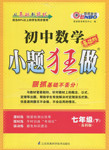题目内容
Paper produced every year is ________ the world's production of vehicles.
A. the three times weight of B. heavier three times than
C. as three times heavy as D. three times the weight of
练习册系列答案
 小题狂做系列答案
小题狂做系列答案
相关题目
题目内容
Paper produced every year is ________ the world's production of vehicles.
A. the three times weight of B. heavier three times than
C. as three times heavy as D. three times the weight of
 小题狂做系列答案
小题狂做系列答案